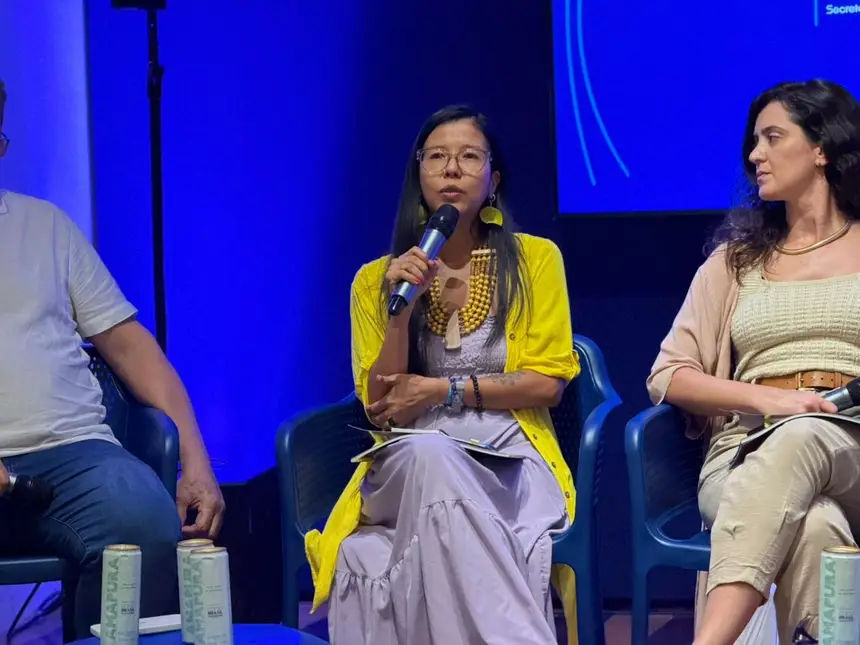Secult presents guide to measure sociocultural, environmental, and economic impacts
The material is available for free on the Secult website
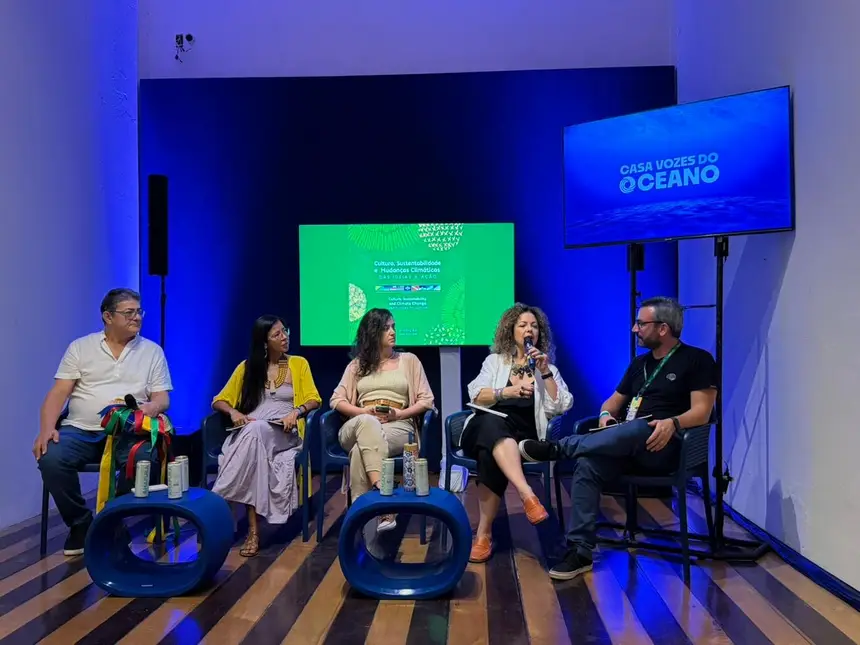
On the afternoon of this Thursday (13), the State Secretariat of Culture (Secult) presented the Guiding Notebook for Measuring the Impact of Cultural Projects, developed in cooperation with the Foundation for Support and Development of Research (Fadesp) and with consultancy from Baanko. The event took place at the Casa das Onze Janelas, during the Casa Vozes do Oceano program.
The presentation occurred during the panel "Culture, sustainability, and climate – The social, economic, and environmental impacts of the sector," composed of the State Secretary of Culture, Ursula Vidal; the Director of Culture of Secult, Tamyris Monteiro; Júnior Soares, co-founder of Arraial do Pavulagem; and, representing Baanko, André Menezes and Paula Dias.
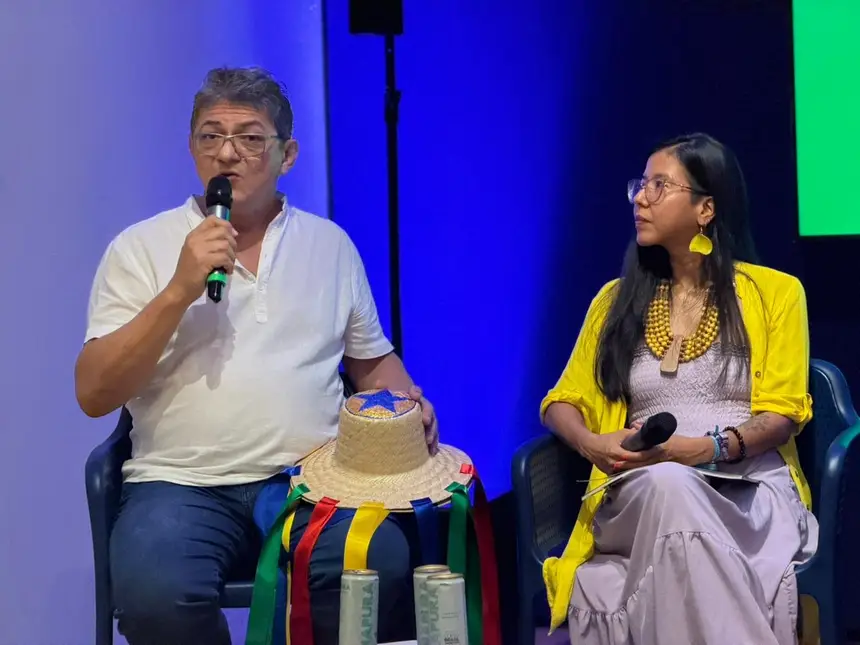
The guide aims to support cultural producers in systematizing and communicating the impacts generated by their initiatives. The official launch will take place this Friday (14), in the Seringueira Room, during the programming of the Pará Pavilion at COP30.
The goal is to provide practical guidelines so that cultural agents can measure and present the impacts of their actions clearly, structured, and strategically. Translating the sociocultural, environmental, and economic effects strengthens the recognition and appreciation of the work developed, expanding opportunities for funding, partnerships, and continuity.
On this occasion, the head of Secult, Ursula Vidal, highlighted the importance of measuring impacts, especially economic and environmental ones, to demonstrate cultural production as a solution to contemporary challenges.
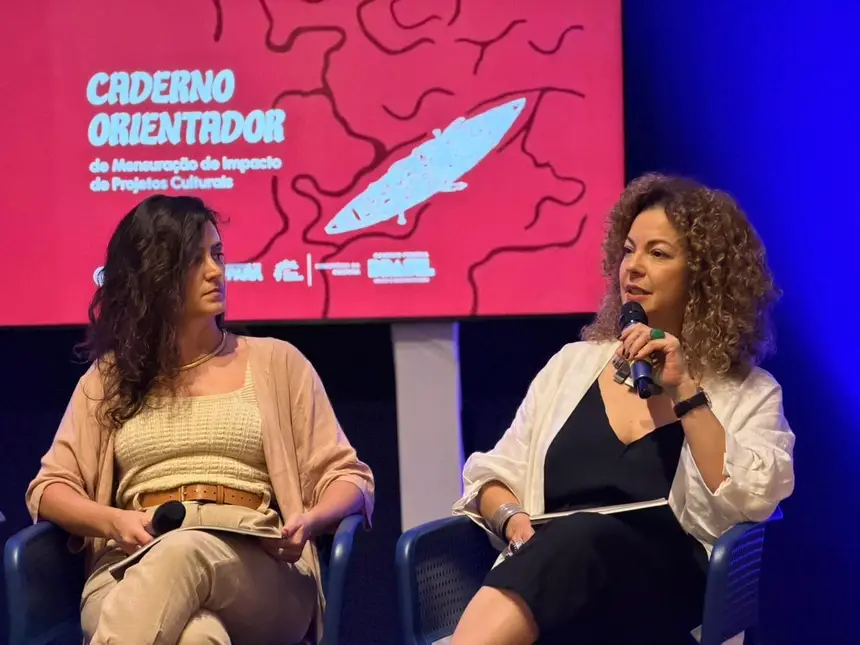
“This is the immense impact capacity of the creative industry, of the creative economy. And we want our Secult to increasingly be about culture and creative economy, to understand the economic impact that we already have. Because it is work about belonging, about cultural citizenship, maintenance of heritage, but it is also about combating social inequality and generating jobs and income. The North is the region with the greatest traction in the growth of low-carbon cultural economy. This is green economy, we work with this, with the economy of the future. We are a solution, including, for this crisis we are facing,” emphasized the secretary.
The material was developed from the accountability reports submitted by cultural agents in the final stage of the execution of the Paulo Gustavo Law (LPG) in the State of Pará. The materials related to the notices launched by Secult in 2023 were analyzed. The curation was conducted by the Director of Culture, Tamyris Monteiro, and by Flávio Bezerra Barros, a professor at the Federal University of Pará (UFPA).
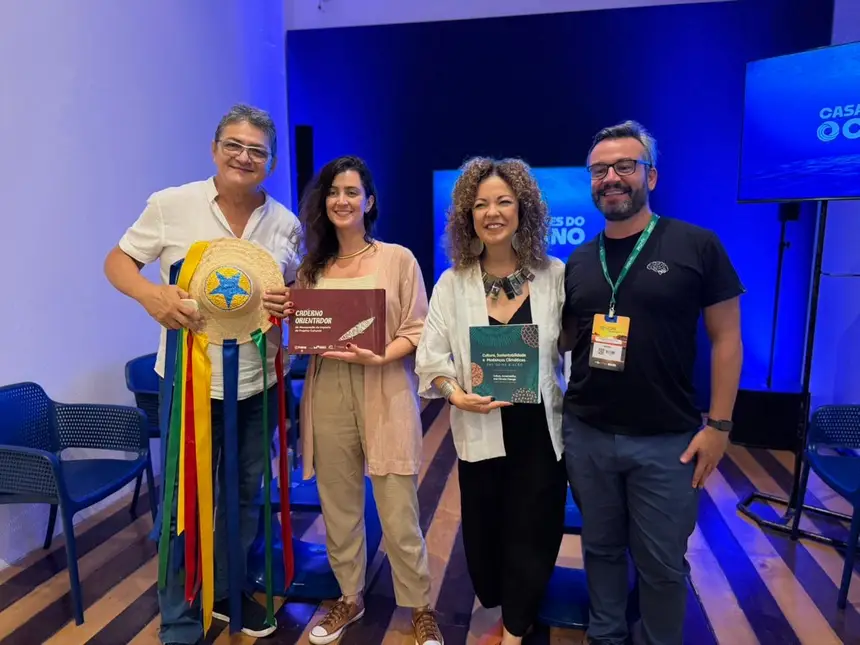
Director Tamyris Monteiro explained how the proposal to develop the guide came about. “We started to execute this resource [from the LPG] in 2023, finishing in 2024. And, when it came time to receive the accountability reports - in which these cultural makers report to us what they managed to execute, what they could not, what the difficulties were — we realized the need to better map how the impact occurred within these territories, in each of the integration regions of the State,” noted Tamyris.
The Notebook is already available for free on the Secult website, in the Downloads tab: https://secult.pa.gov.br/
Text: Juliana Amaral / Ascom Secult


